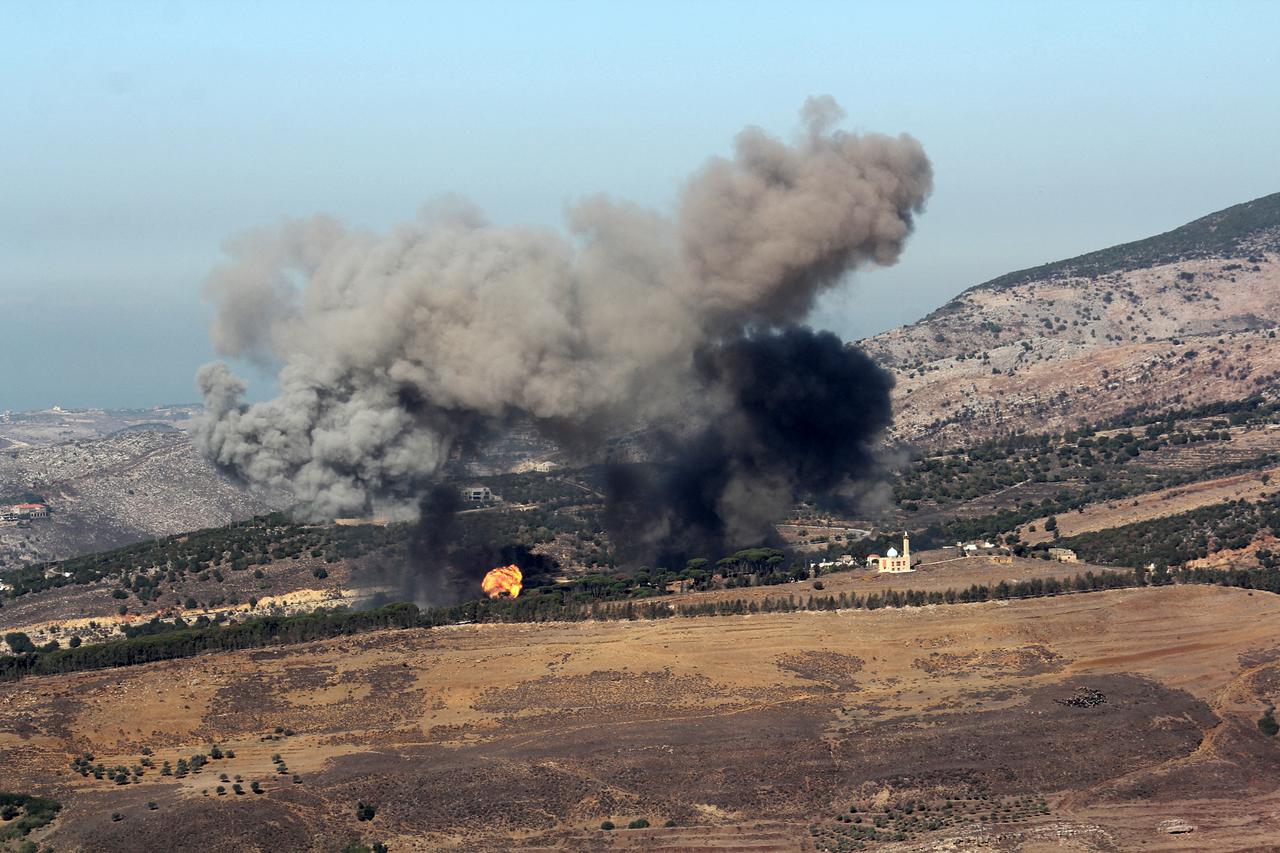
Israeli Defense Minister Israel Katz warned on Sunday that the Israeli military would step up its attacks against Hezbollah in southern Lebanon, a day after the Lebanese health ministry reported four people killed in an Israeli strike.
"Hezbollah is playing with fire, and the President of Lebanon is dragging his feet," Katz said in a statement.
"The commitment of the Lebanese government to disarm Hezbollah and remove it from southern Lebanon must be realized. Enforcement of the maximum will continue and even intensify—we will not allow a threat to the residents of the north," he added.
The warning came as Israel continued military operations in violation of the ceasefire agreement signed between Israel and Hezbollah in November 2024.

According to Lebanon's official news agency NNA and the Lebanese health ministry, four people were killed and three wounded in an Israeli unmanned aerial vehicle (UAV) strike on a vehicle in the Nebatiye governorate in southern Lebanon.
The strike targeted a vehicle in the Kefrman town, which is part of Nebatiye, during the night hours.
"The health ministry announced that four people lost their lives in the attack, while three people were wounded," Lebanese health officials stated.
The Israeli army had also conducted another UAV strike the previous day at midday in the Kfar Sir town of Nebatiye, wounding one person in that operation.

The Israeli army confirmed carrying out the overnight airstrike in southern Lebanon, stating that it killed four members of Hezbollah's elite Radwan Force.
"The primary target of the strike in Kfar Roummane was the force's logistics chief," the Israeli army said in a statement.
The military did not name the individual but stated that he was involved in transferring weapons and "attempts to restore terror infrastructure" in southern Lebanon.
"The three other men killed in the strike were also members of the Radwan Force," the Israeli army stated, adding that "their activities constitute a violation of the ceasefire."
Lebanese media identified the four killed as Jawad Jaber, Hadi Hamid, Abdullah Kahil, and Muhammad Kahil.

Despite the ceasefire agreement signed on Nov. 27, 2024, between Israel and Lebanon, Israeli forces have continued to violate the accord with increasing frequency.
According to reports based on Israeli officials' statements to local media, Israel has violated the ceasefire more than 4,500 times, with hundreds of civilians killed and wounded in these violations.
Israel has also maintained occupation of the five hills captured during the recent war in Lebanon, while continuing its presence in several regions it has held for decades.
Israeli Foreign Minister Gideon Saar claimed that Hezbollah is attempting to rearm despite the ceasefire agreement.
Speaking at his home to visiting German Foreign Minister Johann Wadephul, Saar announced that they held a comprehensive discussion covering regional developments, including Gaza Strip and Lebanon operations despite the ceasefire, as well as bilateral relations.
"I emphasized to my German counterpart that Hezbollah's rearming in Lebanon would have serious consequences for Israeli security and Lebanon's future," Saar stated on his X account following the meeting.
Saar indicated that Israel would continue operations in the Gaza Strip, Lebanon, and Yemen for "regional stability and security," threatening that Hamas, Hezbollah, and the Houthis must be "eradicated."
The current escalation follows a broader conflict that began when Israel launched attacks against Lebanon in October 2023, which escalated into a full-scale war in September 2024.
Over 4,000 people were killed and approximately 17,000 were wounded in the war, according to available reports.
The ceasefire agreement was reached in November 2024 between Hezbollah and Israel.
However, despite this agreement, Israel has violated the ceasefire more than 4,500 times, resulting in the deaths and injuries of hundreds of civilians.
In addition to the ceasefire violations, Israel continues to occupy five hills captured during the recent war in Lebanon. The Israeli military also maintains its presence in several regions it has held for decades.
The occupation of these strategic positions continues despite the ceasefire agreement and international calls for complete Israeli withdrawal from Lebanese territory.